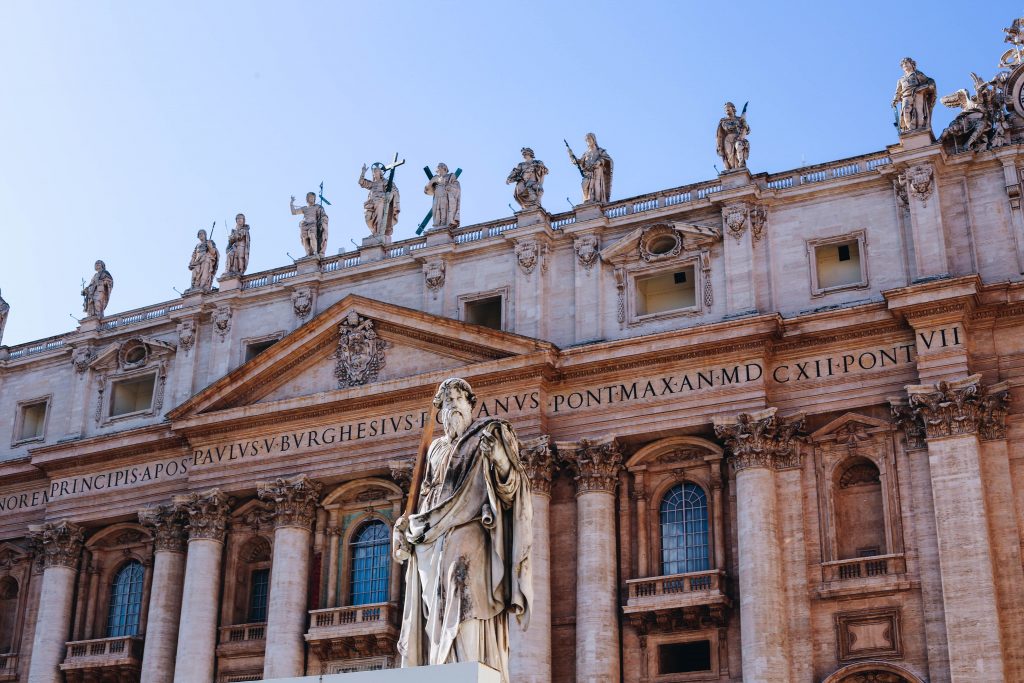So many people today struggle with questions dealing with God, religion, and faith, that much of our society has come to the conclusion that there is just no way to know what is actually true.
And to be honest, if one were to look at Christianity as a whole today, it seems like Christians are not all that different from the rest of society. Though claiming to be united in Christ, it isn’t difficult to find two Christians who have contradicting beliefs.
Therefore, it begs the question: Is it possible to know the truth about God?
And if it is, how?
Well, the Catholic Church claims that it is possible.
And this is how…
God Has Revealed Himself
For nearly 2,000 years, since the founding of the Catholic Church, Catholics have believed that God, from all eternity, fully revealed Himself in the person of Jesus Christ.
When the man Jesus of Nazareth walked the earth, ate with his disciples, and taught from the Hebrew Scriptures, it is believed that He was not only a man. That, in some mysterious way, he was God too.
In other words, when someone looked into the eyes of Jesus of Nazareth in AD 26, they were very truly looking into the eyes of Almighty God.
And during his rather brief 33 years of life here on earth, our Lord, Jesus of Nazareth, revealed much about the character of God and God’s will for humanity.
Rather than leaving it up to chance that people of other times and places would somehow come to know that God had revealed Himself, our Lord Jesus founded a Church on twelve men, known as his Apostles, who were commissioned to receive the contents of his Revelation and carefully pass it down.
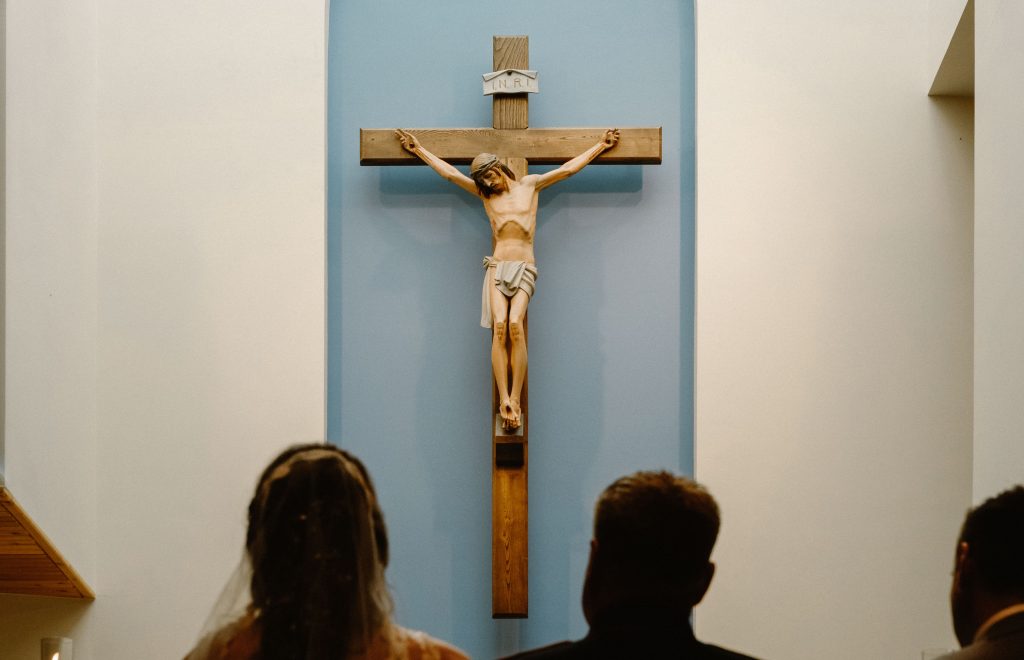
The official term used by the Church today to refer to all that has been revealed by God in Jesus Christ is the Deposit of Faith.
And this so-called Deposit of Faith, is what’s contained in both Sacred Scripture (the Bible) and Sacred Tradition.
RELATED: Sacred Scripture and Sacred Tradition – Are Both Needed?
But the question remains, how can one be certain that what was revealed by Christ to the Twelve Apostles 2,000 years ago has been safely passed on to us today?
How can we be sure that what the Catholic Church teaches is truly the teaching of Christ?
What is the Magisterium of the Catholic Church?
The answer is that, before his ascension into Heaven, our Lord established an official office of authority to interpret, teach, and safeguard his Revelation.
And the authority in which he gave is not merely of human origin, but shares in the very divine power of Christ.
So, you may be wondering: Who exactly has been given the official authority and role to interpret, teach, and safeguard God’s Revelation?
Well, some would want to say every Christian believer. And in a sense, they wouldn’t be totally wrong.
Each and every baptized Christian has been given a special participation in the authority of Christ to assist in the transmission of the Deposit of Faith.
However, the lay faithful, those members of the Church who are not ordained, participate in this part of the Church’s mission primarily by faithfully receiving God’s Revelation and living lives in accordance with it.
In addition to the role of the laity, however, Christ has entrusted the official interpretation of both Sacred Scripture and Sacred Tradition to a living teaching office (magisterium) within the Church, made up of very particular persons.
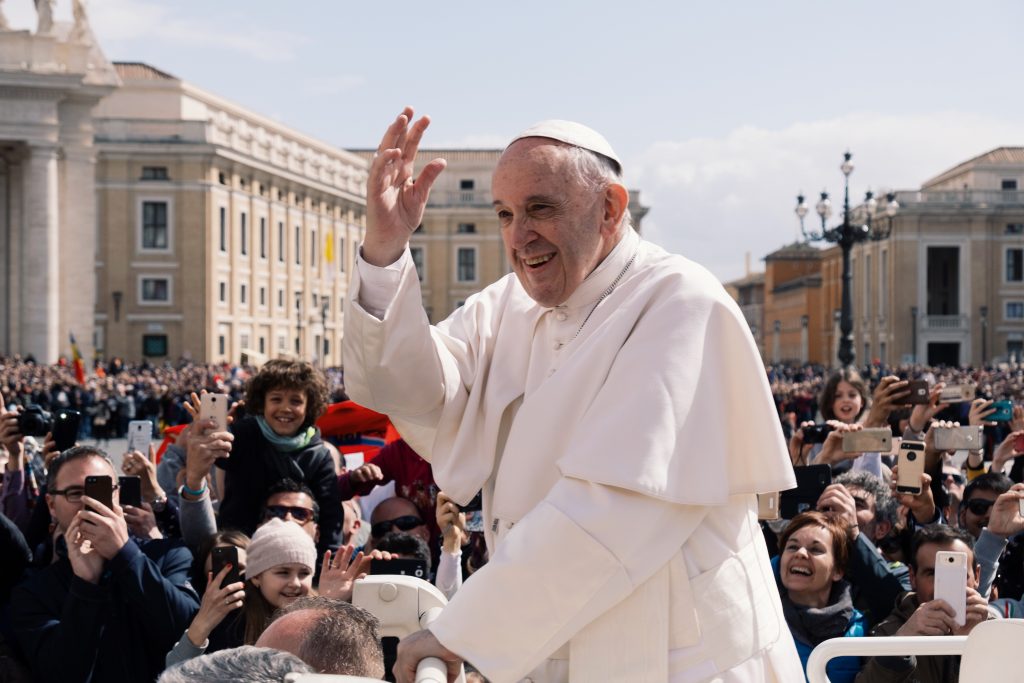
And these persons include all the Catholic bishops throughout the world in communion with the Pope, who is the Bishop of Rome.
This living teaching office, made up of the bishops, is what we call the Magisterium of the Catholic Church. And in case you’re wondering, the word Magisterium comes from the latin word magister which can be translated into english as “teacher”.
How the Bishops Have This Authority
How do Catholic bishops together have the authority of Christ to interpret, teach, and safeguard the Revelation of God?
It is because these bishops, due to their episcopal ordination, are the successors of the Apostles themselves.
As you can see here in the Gospel of John, our Lord, having the authority of God, chose to share His divine authority with the Apostles:
“‘As the Father has sent me, even so I send you.’ And when he had said this, he breathed on them, and said to them, ‘Receive the Holy Spirit. If you forgive the sins of any, they are forgiven; if you retain the sins of any, they are retained.’”
-John 20:21-23
By giving the Twelve Apostles the gift of the Holy Spirit in this way, they now had a power that, prior to Jesus, was reserved to God alone: the authority to forgive sins.
But the divine power, handed on to the Apostles in this passage, was not limited to just forgiving sins, but also included governing the Church, made clear in our Lord’s address to St. Peter in the Gospel according to St. Matthew:
“Jesus said to him in reply, ‘Blessed are you, Simon son of Jonah. For flesh and blood has not revealed this to you, but my heavenly Father. And so I say to you, you are Peter, and upon this rock I will build my church, and the gates of the netherworld shall not prevail against it. I will give you the keys to the kingdom of heaven. Whatever you bind on earth shall be bound in heaven; and whatever you loose on earth shall be loosed in heaven.”
-Matthew 16:17-19
And then in our Lord’s address to the other eleven apostles:
“Amen, I say to you, whatever you bind on earth shall be bound in heaven, and whatever you loose on earth shall be loosed in heaven.”
– Matthew 18:18
So, how does that power get from the Twelve Apostles to the bishops today?
Well, just as a role in state government, such as senator, does not end at the death of a particular senator in office, it was understood by the Twelve Apostles that the role of an apostle does not end at the death of one of the Twelve Apostles.
In other words, our Lord’s apostles understood themselves to be sitting on an official seat of authority that would endure beyond their lifetime.
Therefore, when an apostle would die, or the Church would expand in either geography or population, and it was practically necessary, they would select another man to take the office.
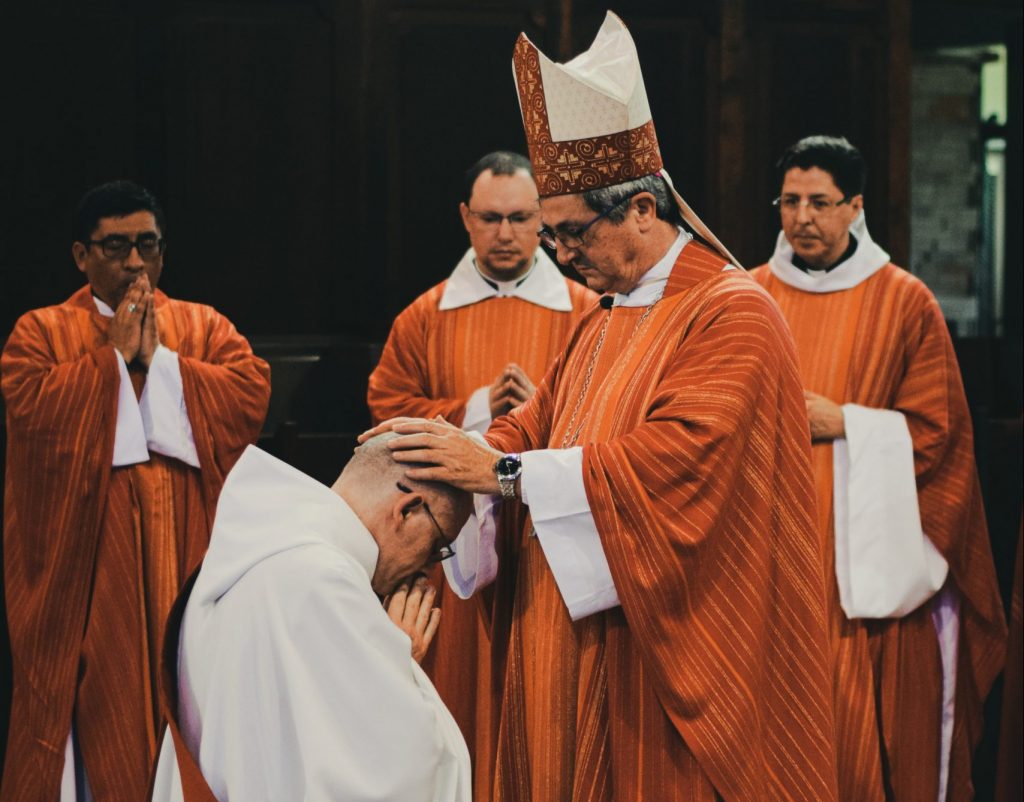
However, to make a distinction between the Twelve Apostles themselves and their successors, the term bishop, meaning “overseer” (translated from the Greek episkopos), was given to their successors.
You can see an example of this succession in the account of the Apostles replacing Judas Iscariot’s seat following his suicide:
“Then they prayed, ‘You, Lord, who know the hearts of all, show which one of these two you have chosen to take the place in this apostolic ministry from which Judas turned away to go to his own place.’ Then they gave lots to them, and the lot fell upon Matthias, and he was counted with the eleven apostles.”
-Acts 1:24-26
Why is the Magisterium Important?
So why does the Magisterium, the official teaching office of the Church, exist? Couldn’t our Lord have just left it up to individual Christians to interpret his Revelation on their own?
The reason the authority of the Magisterium exists is primarily for the sake of leading the faithful to Heaven and away from any danger that might lead to the loss of eternal life.
In other words, the Magisterium exists so as to enable us, the faithful of God’s Church, to become saints.
What do I mean?
The Magisterium has been given its authority by Christ so that the faithful might know the truths of God’s Revelation with both confidence and certainty.
The reality is that if you don’t know the truth, you can’t live according to it.
And if it wasn’t for the gift of this inspired, or God-breathed, teaching authority, given to the Church by Christ Himself, we would be completely on our own in the interpretation of Sacred Scripture and the determination of what is authentic Apostolic Tradition.
Therefore, we should see in the Magisterium a great gift given to us by the Lord enabling us to focus less on figuring out what to believe and more on living according to what has been revealed.
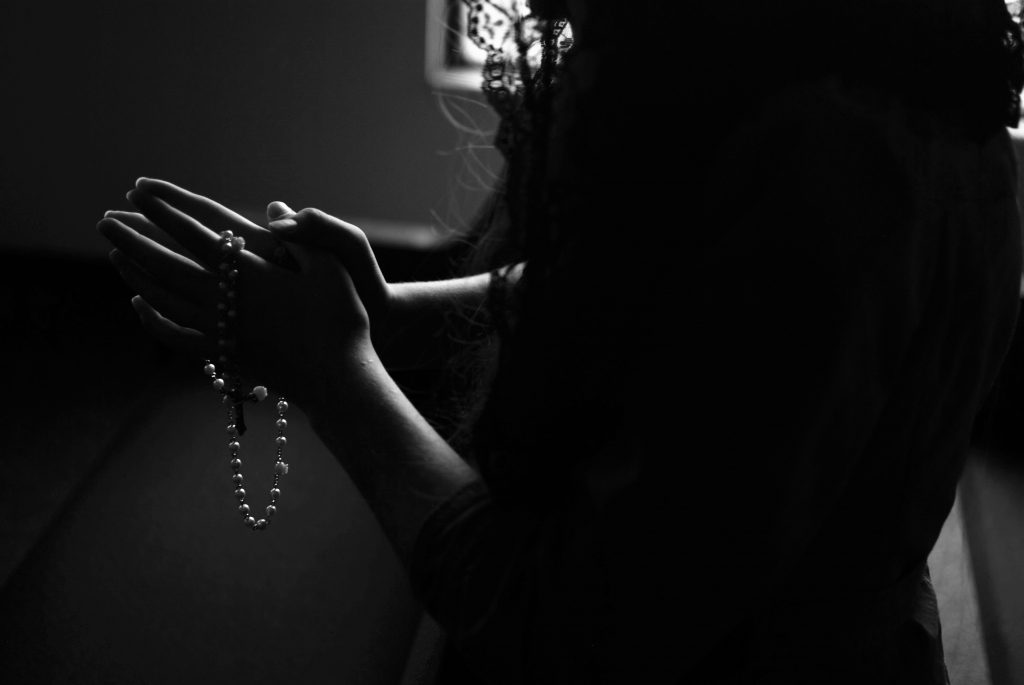
In addition, it is the magisterium’s ability to propose dogmas and teach authoritatively, under the guidance of the Holy Spirit, that enables a safe transmission of God’s Revelation from age to age.
And the role of the Holy Spirit in this process cannot be overstated. In fact, St. John, in his gospel and first letter, teaches us that it is the Holy Spirit who instructs both the Apostles and their successors, guiding both the teaching office and the entire faithful into all truth. (John 20:22; 1 John 2:27)
That said, not only does the Holy Spirit sustain the handing on of God’s Revelation in the Church but the Holy Spirit also deepens the Church’s understanding of it over the course of history.
To use the words of Dei Verbum, the Second Vatican Council’s Dogmatic Constitution on Divine Revelation, “as the centuries succeed one another, the Church constantly moves forward toward the fullness of divine truth until the words of God reach their complete fulfillment in her.”
How Should We Respond?
So, how should we respond as Catholics to the gift we have in the teaching office of the Church?
Well, first, we should give thanks. It is through this teaching office that our Lord continues to speak prophetically in our world today.
When seeking God’s will for our individual lives, we can be confident that he, first and foremost, speaks to us through his Church.
Secondly, we should regularly pray for our bishops, especially the Holy Father, or Pope. That they may be open to guidance of the Holy Spirit in their teaching and governing of the Church.
Here is a beautiful prayer you can pray regularly for our bishops:
Jesus, Good Shepherd, You sent us the Holy Spirit to guide Your Church and lead her faithful to You through the ministry of the successors of Your Apostles, the bishops.
Through the inspiration of the Holy Spirit, grant to Your bishops wisdom in leading, faithfulness in teaching, and holiness in guarding Your sacred Mysteries.
As they cry out with all the faithful, “Our Father!”, may Your bishops be ever more closely identified with You in Your divine Sonship and offer their own lives with You, the one saving Victim.
Renew in Your bishops deeper faith, greater trust in You, childlike reliance on our Mother Mary, and unwavering fidelity to the Holy Father.
Holy Mary, intercede for Your bishops.
Sts. Peter & Paul, pray for them.
St. Andrew, pray for them.
St. James, pray for them.
St. John, pray for them.
St. Thomas, pray for them.
St. James, pray for them.
St. Philip, pray for them.
St. Bartholomew, pray for them.
St. Matthew, pray for them.
Sts. Simon & Jude, pray for them.
St. Matthias, pray for them.
St. Joseph, protect them.
St. Michael, defend them.
St. John Vianney, pray for them.
All you saints in heaven, pray for them.
Amen.
What are your thoughts about the teaching authority of the Catholic Church?
Let me know below in the comment box!

